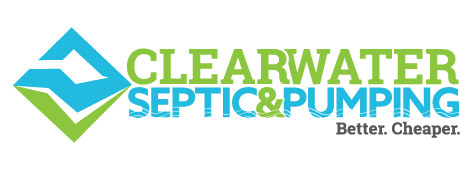Proper Disposal of Household Waste: Safeguarding Your Septic System
The efficient operation of a septic system is a delicate dance of natural processes that rely on balance and careful maintenance. One crucial aspect often underestimated is the proper disposal of household waste. The choices you make regarding waste disposal can significantly impact the health and longevity of your septic system, as well as the well-being of the environment. Embracing responsible waste disposal practices is not just a choice; it's a vital step towards safeguarding your septic system and contributing to a healthier planet.
Understanding the Impact of Household Waste
Household waste encompasses a wide range of materials, from everyday trash to items flushed down the toilet or washed down the sink. When these materials enter your septic system, they interact with the delicate ecosystem within the tank, potentially disrupting the natural processes that break down waste. Improper disposal can lead to clogs, backups, and even system failures, ultimately necessitating costly repairs.
Say No to Non-Biodegradables: The primary rule of thumb for proper waste disposal is to avoid introducing non-biodegradable materials into your septic system. These materials do not readily break down and can accumulate, causing blockages and inhibiting the flow of wastewater. Items such as disposable diapers, feminine hygiene products, paper towels, and wipes should never be flushed down the toilet. Instead, dispose of them in the regular trash.
Mind Your Kitchen Sink: The kitchen sink is another potential culprit for improper waste disposal. Fats, oils, and grease from cooking should never be poured down the drain. These substances can solidify and accumulate in the pipes, hindering the flow of wastewater and leading to clogs. Instead, collect cooking grease in a container and dispose of it in the trash.
Watch Out for Chemicals: Harsh chemicals, including bleach, drain cleaners, and pesticides, can disrupt the natural balance of bacteria in your septic tank. These chemicals can kill the beneficial bacteria that play a crucial role in breaking down waste. Avoid pouring chemicals down the drain and opt for septic-safe cleaning products when possible.
Embrace Biodegradables: The key to proper waste disposal lies in favoring biodegradable materials that can safely decompose within your septic system. Biodegradable toilet paper and cleaning products are designed to break down naturally, allowing the bacteria in the tank to perform their vital function.
The Path to Responsible Waste Disposal
Adopting responsible waste disposal practices goes beyond protecting your septic system; it's an integral part of being an environmentally conscious homeowner. Here's how you can contribute to a healthier septic system and planet:
Educate Your Household: Make sure everyone in your household understands the importance of proper waste disposal. Teach children what can and cannot be flushed down the toilet or poured down the drain.
Use Trash Bins: Place trash bins strategically in bathrooms and kitchens to encourage the proper disposal of non-biodegradable items.
Regular Maintenance: Schedule routine septic tank pumping and inspections with professionals like Clearwater Septic and Pumping to prevent waste buildup and catch potential issues early.
Composting: Consider starting a composting system for organic kitchen waste. Composting not only reduces the strain on your septic system but also enriches your garden soil.
Choose Septic-Safe Products: Opt for septic-safe cleaning products and detergents that won't harm the beneficial bacteria in your septic tank.
Clearwater Septic and Pumping: Your Partner in Responsible Waste Disposal
Clearwater Septic and Pumping understands the crucial connection between proper waste disposal and a well-functioning septic system. Our experts are dedicated to guiding homeowners on best practices that protect both their septic systems and the environment. By partnering with Clearwater Septic and Pumping, you gain access to a wealth of knowledge and experience, ensuring the longevity and efficiency of your septic system.
In Conclusion, proper disposal of household waste is a fundamental responsibility that extends beyond your property lines. By embracing responsible waste disposal practices, you safeguard your septic system's health, reduce the risk of system failures, and contribute to a cleaner, healthier environment. Remember, every small action you take adds up to a more sustainable future.

